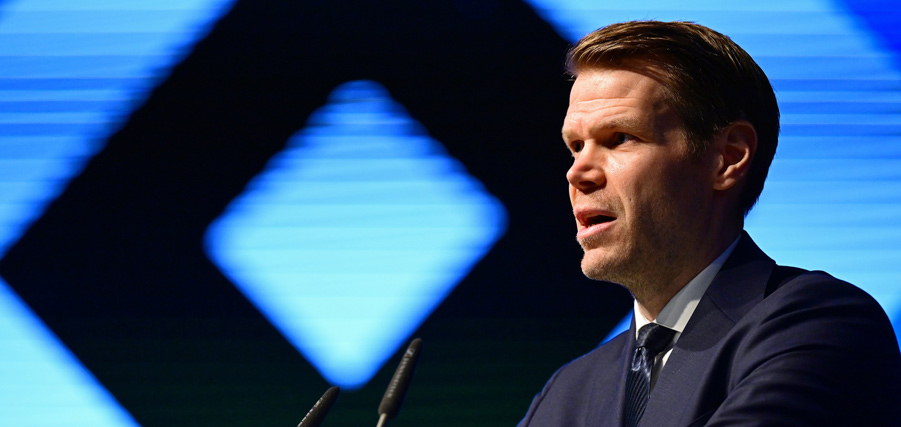
Club
14.01.25
Huwer: "This verdict challenges the national security architecture"
The Federal Constitutional Court rejected the DFL's constitutional complaint regarding the costs of police operations for high-security matches. This means that the states can charge football clubs a share of the costs for police operations.
The DFL has failed in its dispute over the umbrella organisation's contribution to the costs of police operations for high-risk matches at the Federal Constitutional Court. Their constitutional complaint against a corresponding regulation from Bremen was not successful. This was announced by the First Senate in Karlsruhe.
The challenged norm is compatible with the Grundgesetz, explained court president Stephan Harbarth in the judgement. The aim of the regulation is to shift the costs to the entity that has imputably caused them and to whom the profits accrue. This is a legitimate objective under constitutional law.
High-risk matches are defined as matches where clashes between different fan groups are particularly likely. Since 2014, the Bremen Fees and Contributions Act has stipulated that the city can charge fees for additional police costs at profit-orientated events that are known to be prone to violence and involve more than 5,000 people.
The DFL received the first official notification of charges in 2015 - at that time for a Bundesliga match between Werder Bremen and HSV. The city state of Bremen billed the DFL around 400,000 euros for police service costs. Further notifications followed.
The DFL considered this regulation to be unconstitutional and took the matter to court. In the opinion of the umbrella organisation for Bundesliga 1 and Bundesliga 2, there was a lack of a definable contribution by the city of Bremen that could be attributed to it. However, this is a constitutional prerequisite for the lawful levying of fees. Furthermore, individual troublemakers were responsible for the necessary police deployment - and not the organisers of the respective event.
Several courts have already dealt with this controversial issue in recent years. In the first instance alone, the DFL's lawsuit was successful - the Bremen Administrative Court declared the charging of fees unlawful in 2017, among other things because the calculation method was too vague.
A year later, however, the verdict was overturned by the Bremen Higher Administrative Court, which again ruled that the fee claim was legal. In 2019, this decision was confirmed by the Federal Administrative Court in Leipzig.
According to the city of Bremen, fees totalling more than three million euros have been charged to the DFL so far. It remains to be seen whether other states will follow Bremen's example. Should Bremen's model also prevail in theother states, professional clubs would face considerable additional financial burdens.
At HSV, as at all professional clubs, the verdict is causing a lot of discussion. Board member Eric Huwer: "We respect the verdict of the Federal Constitutional Court even if we are irritated by it, as it calls into question the national security architecture. Public security must not be privatised. HSV already bears the full costs for event security at the stadium and in the immediate vicinity. However, events in public spaces are beyond our responsibility and influence, regardless of the occasion. We are therefore working together with the DFL and other clubs to create a standardised nationwide regulation that prevents disadvantages, distributes the financial burden fairly and maintains proportionality at the same time. The safety of our spectators remains our top priority."



